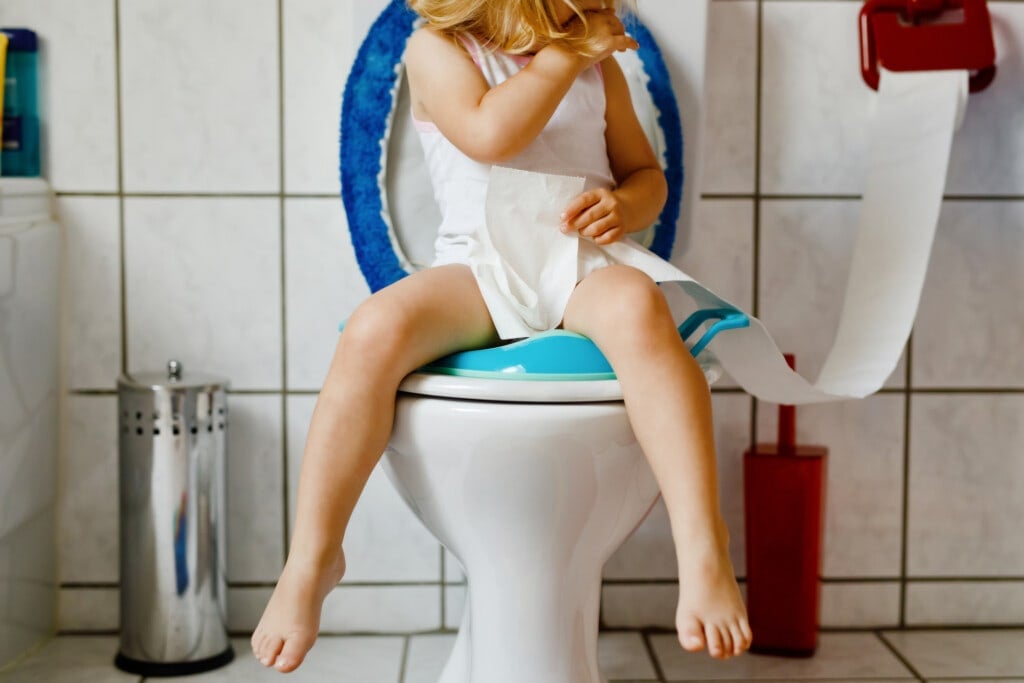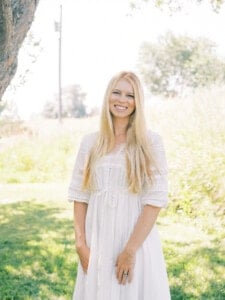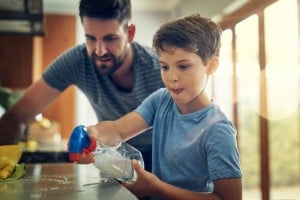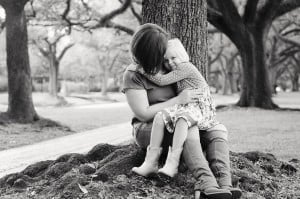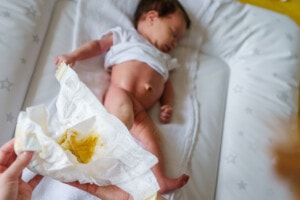Poop is incredibly important. While it is something we tend to dispose of quickly, it pays to be familiar with your toddler’s bowel movements. Indeed, your toddler’s poop can tell you a lot about their physical and emotional health. And when they start potty training, your ability to read their poop will make that milestone smoother.
Needless to say, there is an excellent reason why your pediatrician always asks how pooping is going for your little one—poop matters. Let’s learn about what your toddler’s poop is telling you and some action steps you can take to keep their little digestive systems happy and healthy.
How poop changes from babyhood to toddlerhood.
Likely, you have become quite accustomed to what your child’s poop looked like as a baby. But, once they reach toddlerhood, it can start to look (and smell) a lot different.
There are a few reasons why poop can change from babyhood to toddlerhood. Firstly, toddlers likely have more variety in their diet than when they were first getting accustomed to solids. They are also not as likely to be drinking formula or breast milk by toddler age, which can change how their poop looks. Indeed, switching from formula or breast milk to cow’s milk activates different enzymes in their digestive system, which ultimately changes their microbiome.
Aside from how it looks, your toddler’s poop habits may also change. Perhaps the most significant change you may notice is that constipation may be more frequent in your toddler than when they were a baby. The primary reason why constipation can occur more frequently in toddlers is that their interest in food can change. Toddlers can go through periods where they are not very interested in eating, and when they do eat, they may gravitate only toward specific food items. Their hydration habits may also be inconsistent, making their poop harder to pass.
Does potty training affect a toddler’s poop habits?
Perhaps nothing can rock your toddler’s bowel habits as much as potty training. And, it makes complete sense if you consider that your child has only ever known to poop in a diaper up until you determine it is time for a change.
Tips for Avoiding Constipation
- Fiber – Fiber will help increase your toddler’s stool size and help it pass more easily. Increase their fiber intake slowly so their body can adjust to it. Eating too much fiber all at once can lead to gas and bloating.
- Magnesium – As one of the most abundant minerals in our body, magnesium plays a vital role in regulating our bowels. If your child is prone to constipation, consider adding a magnesium mix or supplement to their diet with your pediatrician’s approval.
- Exercise – Regular physical activity is essential for keeping their bowels moving food along. Make sure they get plenty of time to run around each day.
- Water – Poop is 75% water. We need water to lubricate the stool and our digestive tracts. Make sure your toddler is drinking plenty of plain ol’ water each day to keep things moving along.
One of the most common poop changes with potty training toddlers is they can become more constipated, especially if they are fearful or hesitant with using the potty. Indeed, it is not uncommon for children to withhold poop if they are not ready or opposed to potty training. Yet, nothing can wreck good potty progress like a bad bout of constipation because it is uncomfortable and painful. So, avoiding constipation during potty training is a top priority.
Tips for Avoiding Diarrhea
- Decrease fat – Our bodies can have a hard time digesting fat, especially saturated fats. If diarrhea is common after fatty meals, your child may need to reduce their fat intake.
- Decrease sugar – Sugar decreases the number of good bacteria we have in our guts. Losing that good bacteria can cause diarrhea.
- Curb stress – Chronic stress and even short-term stress can lead to changes in the balance of bacteria residing in the gut.
- Encourage downtime after eating – Physical activity quickens the digestive tract, so eating right before active play can cause an upset stomach.
- Avoid allergens and food sensitivities – There is a big difference between an allergy and a food sensitivity. An allergen can cause a life-threatening reaction in some individuals and should be avoided entirely. A food sensitivity is something that triggers an unpleasant response in your GI tract, like cramping or diarrhea. If your toddler frequently has diarrhea, keep a food diary to see if there is a pattern connected to their diet.
Of course, the opposite of constipation can also be problematic during potty training. Diarrhea is often the result of diet or viral and bacterial infections. For some children, it may also be an emotional response to something that has upset them. Diarrhea will surely happen at some point during potty training. The best way to support your child is to help them stay hydrated, well-nourished, and comfortable (whether that means offering them a diaper until a stomach bug passes or keeping them close to the potty if they are comfortable with using it).
The Nitty Gritty of Toddler Poop
Now that we have covered the changes that poop can undergo from babyhood to toddlerhood, it is essential to get to the bottom of how to read to their poop. Health providers rely primarily on color and consistency to identify what a person’s poop tells them about their overall health. Let’s take a look at each category. You may be surprised to know that these charts apply to you, too!
Poop Color
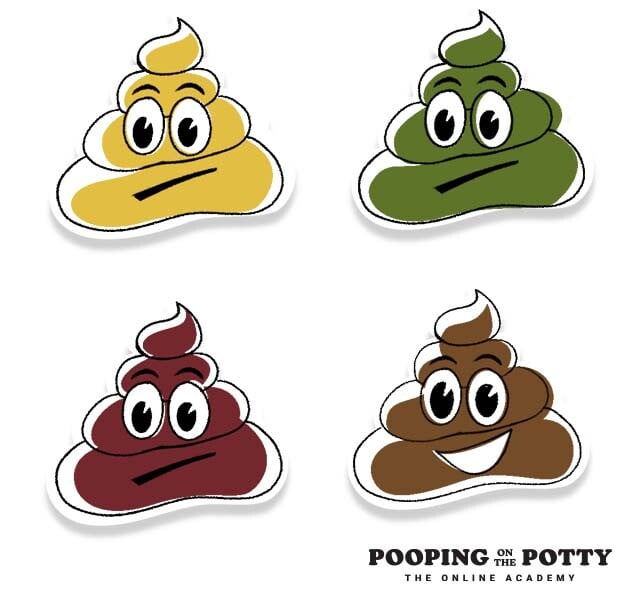
The color of poop is primarily determined by the amount of bile we secrete and the accumulation of old red blood cells (RBCs). Bile is a greenish fluid secreted by the liver to help our digestive tracts digest fat.
As you may imagine, the more fat in your diet, the more bile you will secrete. The standard brown color of poop also comes from a chemical called stercobilin, a by-product of both bile and old red blood cells.
Color can also be influenced by what we eat. For example, any parent who has ever let their toddler decorate cookies with blue frosting will undoubtedly see the evidence a few hours or days later. Likewise, red beets or red food coloring can give the impression that there is bleeding somewhere in the digestive tract. You may also see remnants of your child’s meal, such as tomato skins, corn kernels, or carrot chunks.
Now, silliness aside, there are poop colors that are concerning. Black poop and red poop (unrelated to eating foods with red hues or licorice and other supplements/medications) are the most concerning because that means there is bleeding somewhere in the digestive system.
Poop can also be green, yellow, or gray. Each of these colors (again, unrelated to diet) is usually the result of too much bile, too little bile, or too much fat in your diet.
Poop Consistency
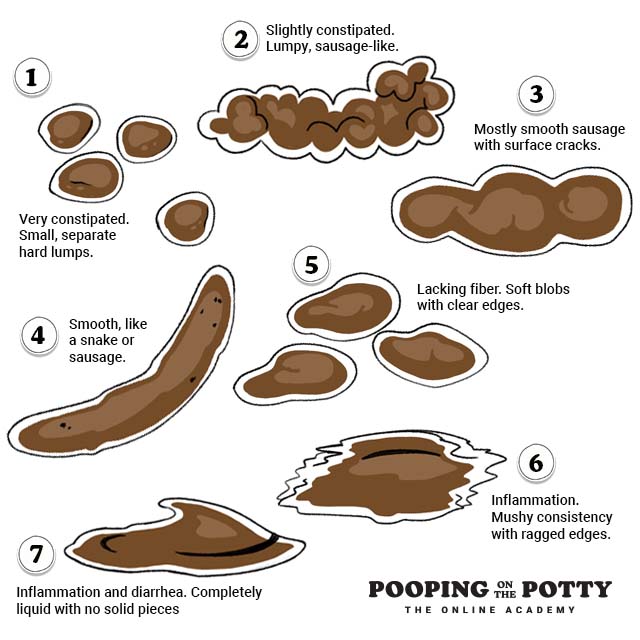
Health providers use the Bristol Stool Chart to identify different textures or consistencies of poop. This chart helps health providers and their patients talk about poop using images and pictures.
Per the stool chart, there are seven main texture types we use when we talk about poop. Poop texture is influenced by numerous things, including what we eat, how hydrated we are, how fast our intestines push food through our intestines, medications (like antibiotics), and stress.
How Parents Can Talk To Their Toddlers About Poop
By now, you have hopefully realized how vital poop is for our health. But, the way we talk about poop and how we feel about it makes it seem like a grossly abnormal bodily function. We have to normalize poop, especially for our kids. It is not uncommon for both children and adults to have poop anxiety. It is also par for the course for children and adults to struggle with poop issues, like constipation and pain.
As parents, we have to make it okay for our children to talk to us about poop. We also have to be open to talking about it with our child’s pediatrician because your child will be watching you and learning that this is okay to share these health details with your health provider. Making this vital bodily function a taboo subject is detrimental to your child’s health and yours.
A few tips to help your kid learn about their poop:
- Give it a name and stick with it – Your child is learning so much in toddlerhood. Being consistent with what you call poop helps reduce confusion. Remember, this word will likely be tossed around among friends and in public spaces, so make sure you are comfortable with your child yelling whatever word you choose to call poop.
- Educate them about their poop from the very beginning – Have your child look at their poop before you flush it away. Teach them what their poop means and give them words to describe their poop. For example, let them know if they have diarrhea, why it happens, talk about how it feels, and how you will help them feel better.
- Talk to them about how their diet influences their poop – Help your child make this important connection between the food they eat and their diet as early as possible. For example, if they have been struggling with constipation, talk to them about how eating yummy apricots or slurping a little prune juice can help them go more easily.
With these tips and having a better understanding 0f your child’s poop, we hope, gives you a bit more peace of mind about what’s going on with your child’s body and health.













